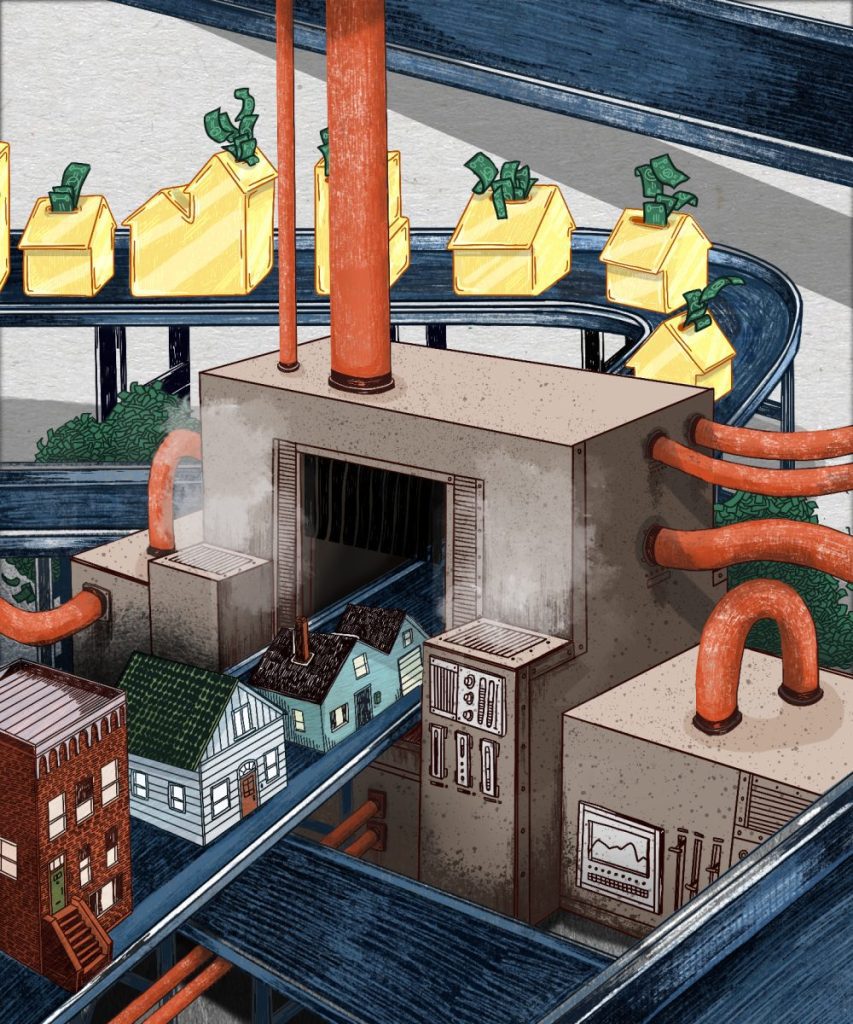
Under the Lens
Homes or Cash Cows?
Nowadays housing is treated more as an instrument for financial gain than a place for shelter. How has this way of thinking changed the market? In this series we explore what people mean when they talk about the “financialization” of housing, some of its causes and effects, and what housing advocates are trying to do about it.
Making Money Over Making Homes

All Articles
sort by Date
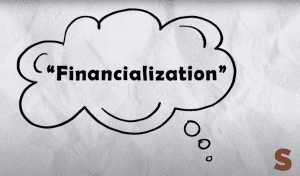
What Is the Financialization of Housing?
It’s a wonky term with real-life consequences. At its most basic level, the “financialization of housing” means treating a home like a financial asset first, and a place to live second. But there are many more perspectives.

The Financialization of Housing and Its Implications for Community Development
Over the last two decades homeowners and investors have increasingly treated housing as a financial asset, like stocks or bonds. How has this changed the housing market for the worse, and how can we fix it?

How the Federal Reserve’s Monetary Policy Drives Housing Inequality
If high home prices and rents are hallmarks of inequality, the actions of the Federal Reserve should give us pause. Its policy interventions have had profound effects on housing prices.
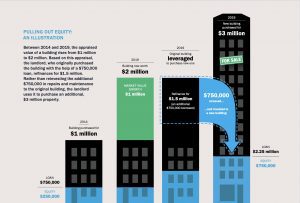
Breaking NYC’s Housing Speculation Cycle
When wealthy investors treat homes like poker chips, it is the tenants who end up losing. How do we interrupt the vicious cycle of speculation and displacement?

Unmasking the Property Owners
There’s a reason land ownership is a matter of public record—but at the moment the records we have aren’t actually doing the job.

When Landlords Hide Behind LLCs
It’s difficult to know who owns a property because corporate landlords and investors tend to structure their business as limited liability companies, or LLCs.

Transforming the Development Industry: A Conversation with Charmaine Curtis
Moving away from financialized housing will take developers who are willing to operate differently.

Can We Prevent Slumlords from Buying More Buildings?
Why should owners of buildings in illegally poor repair be able to buy more rentals? As Washington, D.C., found, it’s not the easiest thing to prevent.

Hands Off the Houses: Can We Stop Speculative Land Grabs?
From the macro scale to the micro scale, there are many ways in which the housing market playing field is tilted toward financial firms—and many ways being proposed to start to tilt it back.

How to Retrofit the Housing Economy
Are policy changes enough to address the housing problems we face?
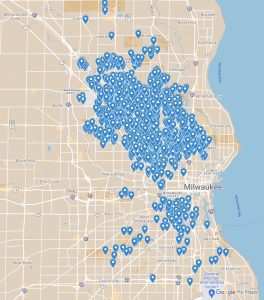
Corporate Landlords Profit from Segregation, at Cost of Black Homeownership and Wealth
As more and more affordable homes are gobbled up by corporate landlords, prospective Black homebuyers are seeing opportunities for homeownership dry up.
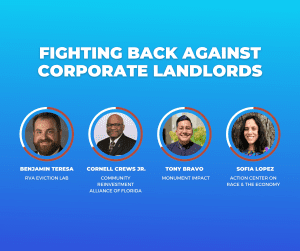
Fighting Back Against Corporate Landlords—A Shelterforce Webinar
Shelterforce recently hosted a conversation about how to fight, and win, against corporate landlords and their extractive business models. Watch the video or read the transcript.

Shelterforce Weekly
Like what you’re reading? Subscribe and make sure you get new articles and more in your inbox every week.
